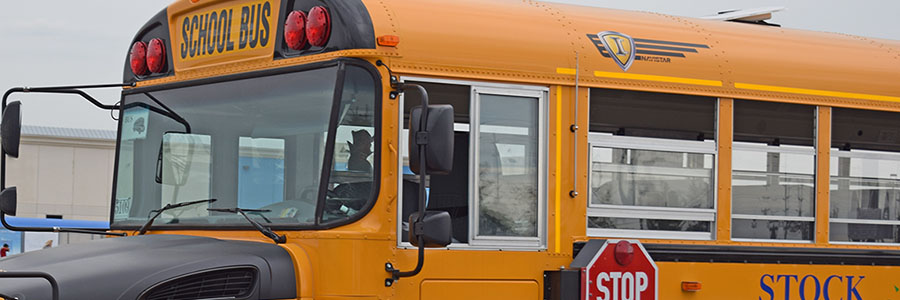Bilingualism and Special Needs
Millie Slavidou
Millie is a British writer and translator living and working in Greece. She writes about etymology on Jump! Mag and has published fiction for kids with Jump! Books
Parents of children with special needs frequently find they need to grow a thick skin to deal with all the ignorance and comments directed at them, and this is especially true in a bilingual family. As a mother of a child with special needs myself, bringing him up in a bilingual family has been a challenge. I have been accused of deliberately trying to sabotage his development through speaking my own language to him!
Meduca regula programa ‘Panamá Bilingüe'
El Ministerio de Educación (Meduca), a través de la Unidad de Idiomas, incorporará a los centros educativos oficiales del país la enseñanza bilingüe, mediante un resuelto que le otorgará la categoría de ‘colegio bilingüe'.
Así está contemplado en el Decreto Ejecutivo 148 de 2016, firmado por el presidente Juan Carlos Varela y la ministra Marcela Paredes, que reglamenta y regula la ejecución del programa Panamá Bilingüe, a 21 meses de gobierno.
La norma contempla que la enseñanza bilingüe tendrá carácter instrumental para la adquisición de conocimientos en otras áreas, de acuerdo con las orientaciones curriculares y se impartirán por lo menos quince horas a la semana, a razón de unas tres horas al día como mínimo.
El periodo de enseñanza comenzará con el curso de kínder extendiéndose progresivamente al resto de los cursos del sistema.
Is bilingual education returning?
Acting U.S. Education Secretary John B. King Jr. recently addressed the importance of bilingual education for our increasingly multi-ethnic society. King said the federal Every Student Succeeds Act, which President Obama signed into law late last year, allows states to include biliteracy in their definitions of educational excellence.
States have the opportunity to invest in ensuring that all new teachers are ready to work in the diverse settings that characterize our schools, and to see the fact a child that speaks a language other than English at home as an asset rather than as a deficit, he said.
The Extraordinary Benefits of Multilingualism
Chris Livaccari
The benefits of learning another language are well-researched and well-documented — but there’s a case that neither educators or language learners are aware of just how beneficial it is. Advocates of bilingualism tend to focus on utilitarian outcomes like strengthening national security, ensuring economic prosperity, getting a better job in the future, or even developing one’s ability to navigate the streets of a foreign capital. But even if you never leave the United States or need anything more than English to live your life and do your job, your education is not complete without the deep experience of learning another language.
Over a series of recent conversations with my fourth and fifth grade students in both the French and Chinese bilingual programs at International School of the Peninsula, we explored the relationship between language and culture. One of the students' main insights was that the process of becoming bilingual has helped them realize that nothing can be directly translated, and that all communication — even within a single language — involves interpretation and nuance. That’s a profound insight, even for professional academics, let alone nine and 10-year-olds. But it shows that our students are already moving beyond the idea that learning a language is all about being able to have a smooth visit to Paris or Beijing.
Mitos sobre el bilingüismo
Dra. Virginia Vinuesa Benítez
Profesora de la Universidad Rey Juan Carlos
Son muchos los padres que dudan a la hora de matricular a sus hijos en modelos de enseñanza bilingüe e incluso a lo largo de su escolarización. Y eso ocurre porque circulan falsos mitos que les hacen creer que los programas bilingües pueden afectar negativamente a una correcta adquisición de conocimientos por parte de los alumnos. Este artículo aborda tres de los mitos más comunes sobre el bilingüismo para ayudar a disipar esas dudas.
MITO 1 “Aprender dos lenguas al mismo tiempo confunde al niño y reduce su capacidad cognitiva”.
Todo lo contrario: el bilingüismo mejora la “flexibilidad cognitiva” y permite al niño ver las cosas desde dos o más perspectivas. Las personas que aprenden dos lenguas poseen una capacidad auditiva mayor que las personas monolingües y maduran antes en términos de abstracción lingüística.
Algunos estudios sugieren que los niños que reciben instrucción en una segunda lengua desarrollan más el pensamiento crítico y creativo, son mejores a la hora de resolver problemas y muestran mayor adaptación en la realización de tareas variadas.
Página 27 de 28
























